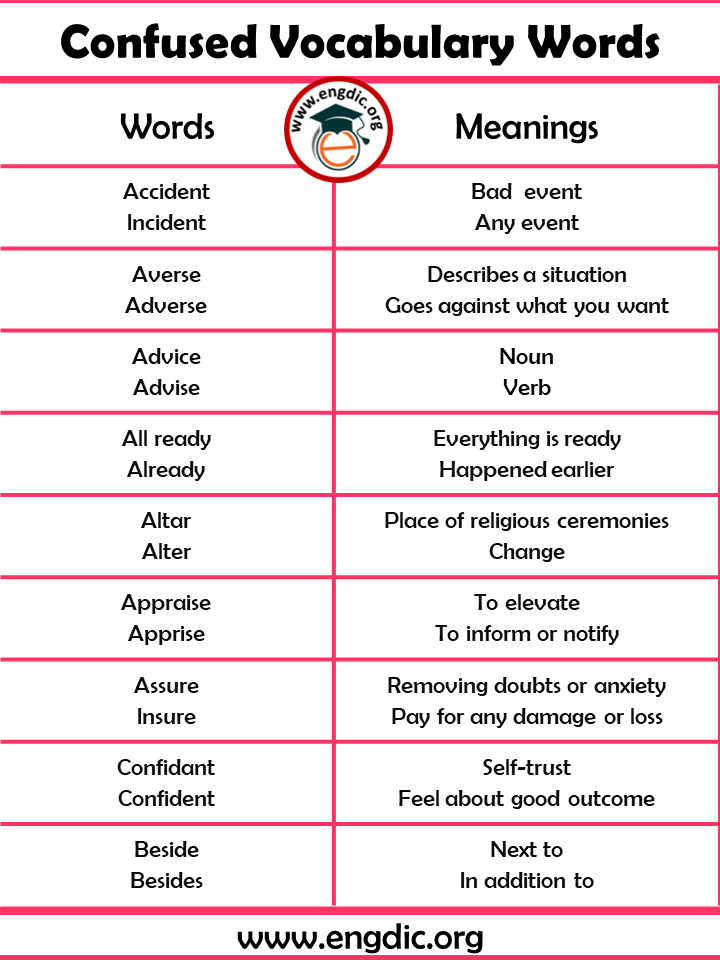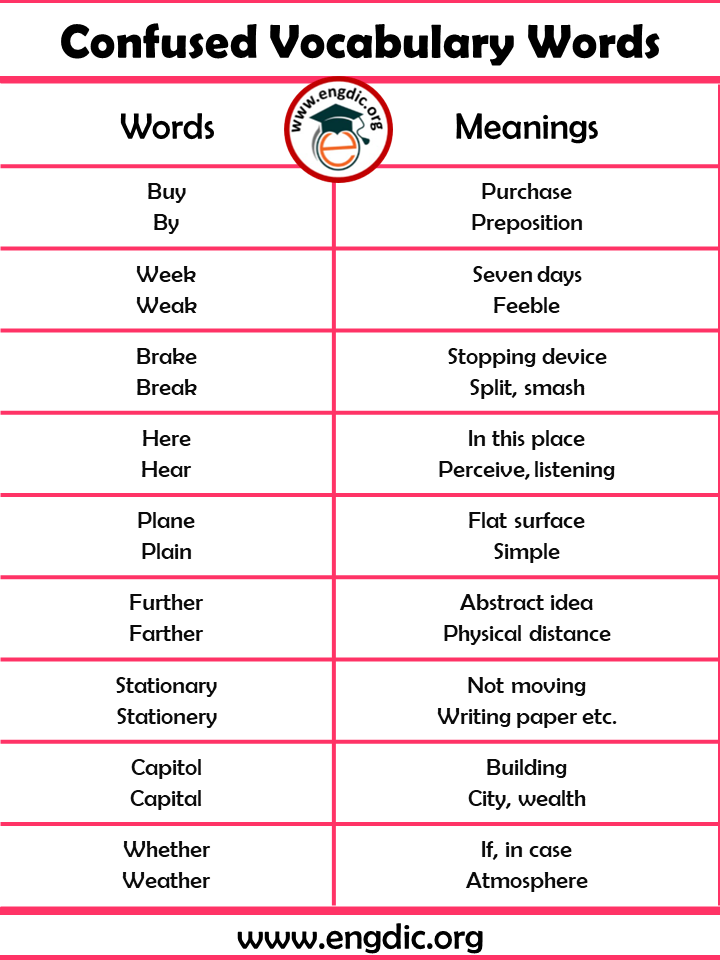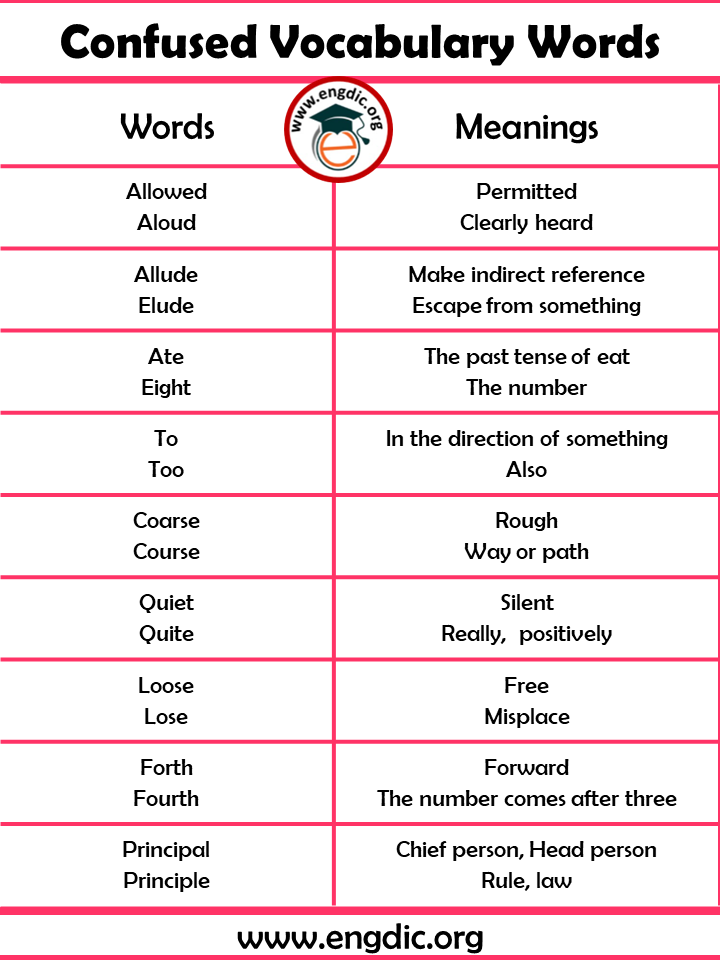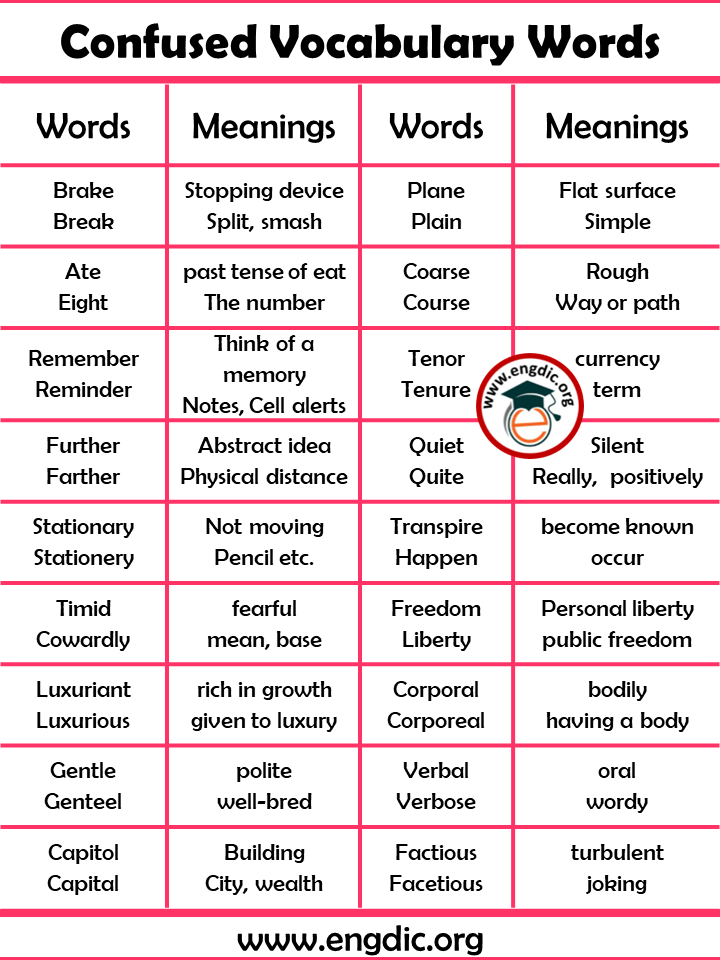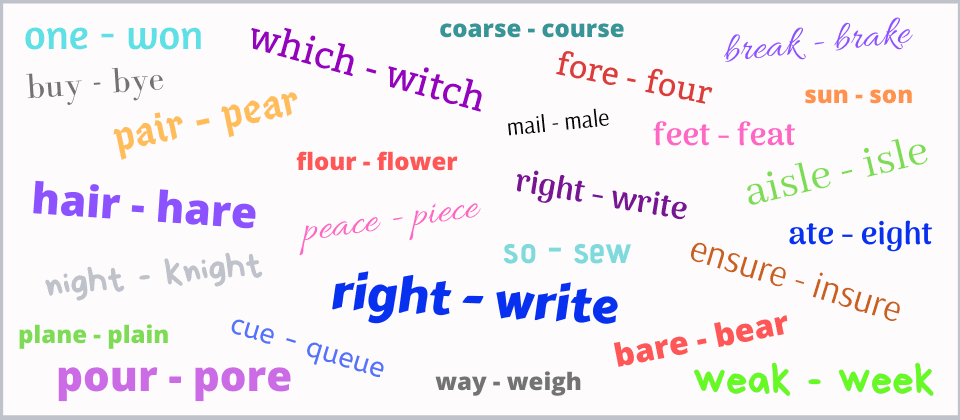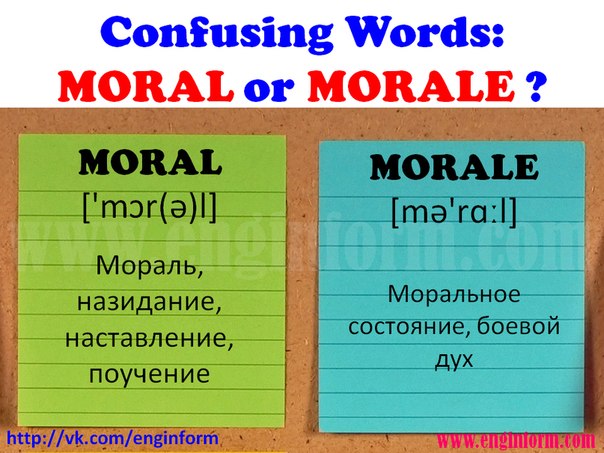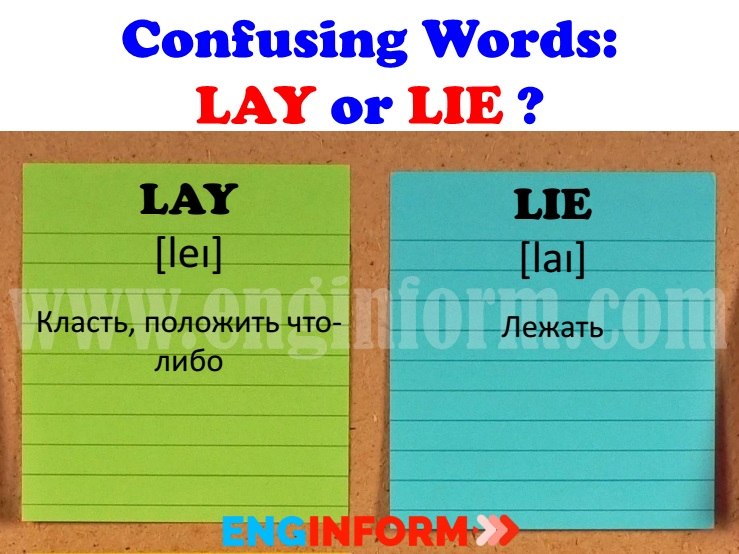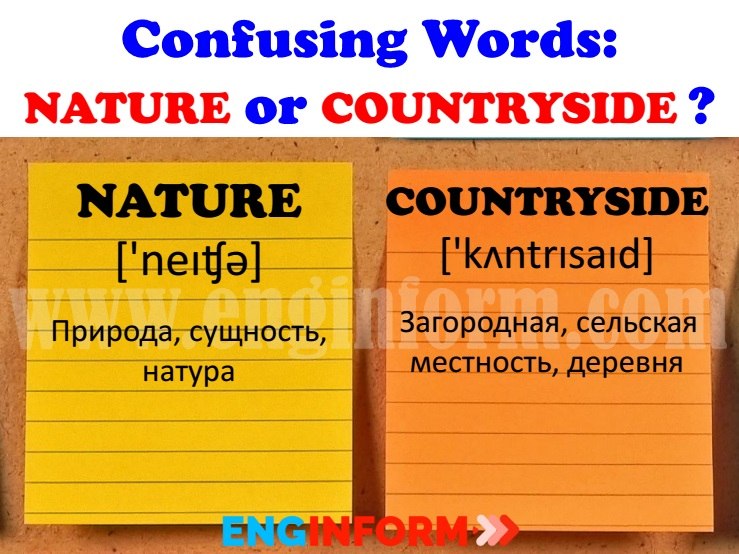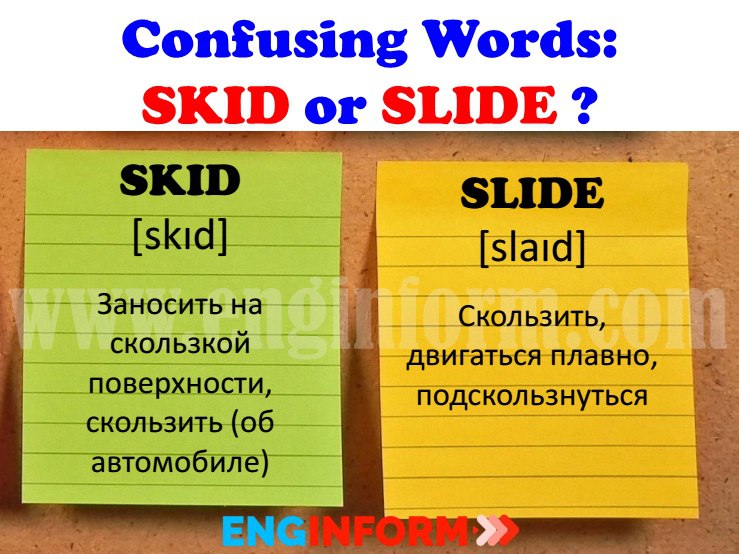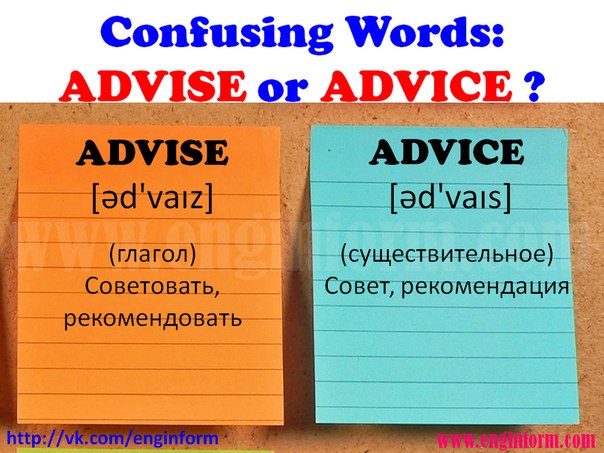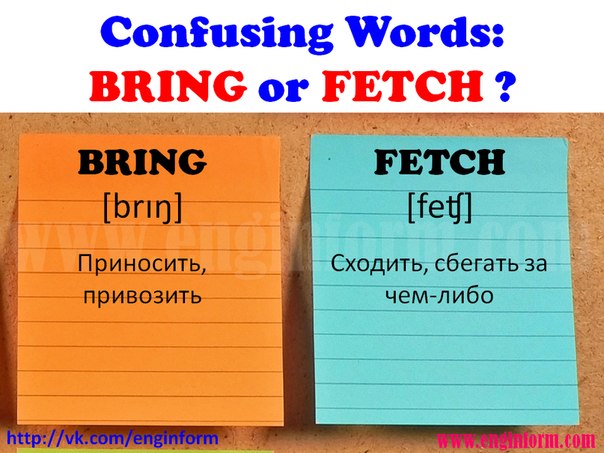Путаете ли вы похожие английские слова? Не пугайтесь — с этой проблемой сталкиваются многие, но она решаема. На современных примерах из фильмов и сериалов покажем, как различать такие слова.
Мы уже рассказывали вам о похожих словах, которые часто путают в английском языке. Но их так много, что все в одну статью никак не поместились бы. Сегодня представим вам 20 новых пар так называемых commonly confused words. Узнайте, как не перепутать босса с поваром, персонал с материалом, цену с призом, кухню с двоюродным братом и политику со стратегией.
Если вы хотите расширить свой лексический запас, записывайтесь на бесплатный вводный урок.
1. Chief or chef?
| Характеристика | Слово | |
|---|---|---|
| chief /tʃiːf/ |
chef /ʃef/ |
|
| Перевод | существительное — лидер, руководитель
прилагательное — главный, самый важный; руководящий |
существительное — повар, шеф-повар |
| Синонимы | существительное — a boss, an employer, a head
прилагательное — main, supreme |
существительное — a cook |
| Пример употребления | I’d like to appoint Jeff chief loan officer. — Хочу назначить Джеффа ведущим кредитным специалистом.
The chief of the staff is responsible for taking serious decisions. — Руководитель персонала ответственен за принятие серьезных решений. |
Remi has always dreamt of becoming a chef at a Michelin-starred restaurant. — Реми всегда мечтал стать поваром ресторана, отмеченного звездами «Мишлен». |
2. Suit or suite?
| Характеристика | Слово | |
|---|---|---|
| suit BrE — /sjuːt/, AmE — /suːt/ |
suite /swiːt/ |
|
| Перевод | существительное — костюм, комплект одежды
глагол — подходить, устраивать, удовлетворять требованиям |
существительное — номер люкс; набор, комплект |
| Синонимы | существительное — a tuxedo
глагол — to satisfy, to match up, to measure up |
существительное — a deluxe room; a set |
| Пример употребления | Try on this suit, I guess it should fit you perfectly. — Примерь этот костюм, я думаю, он будет сидеть на тебе идеально.
The variety of beverages and appetizers at the party suited all tastes. — Разнообразие напитков и закусок на вечеринке удовлетворяло всем вкусам. |
I need a suite in your hotel. — Мне нужен номер люкс в вашем отеле.
We ordered a new four-piece suite for the kitchen. — Мы заказали новый комплект мебели из четырех предметов для кухни. |
3. Cousin or cuisine?
| Характеристика | Слово | |
|---|---|---|
| cousin /ˈkʌzn/ |
cuisine /kwɪˈziːn/ |
|
| Перевод | кузен, кузина; дальний родственник; единомышленник | кухня, кулинарное искусство |
| Синонимы | a distant relative; like-minded person | cookery, national food |
| Пример употребления | Honey, my cousin is going to stay with us for a couple of weeks. — Дорогая, мой двоюродный брат поживет у нас пару недель.
I’ve got plenty of cousins who support me. — У меня много единомышленников, которые поддерживают меня. |
Take me to some cafe where locals eat. I want to try their national cuisine. — Отведи меня в кафе, в котором едят местные. Хочу попробовать их национальную кухню. |
First cousin означает «двоюродный брат/сестра», а second cousin — «троюродный брат/сестра».
4. Deny or refuse?
| Характеристика | Слово | |
|---|---|---|
| deny /dɪˈnaɪ/ |
refuse /rɪˈfjuːz/ |
|
| Перевод | отрицать; мешать, препятствовать | отвергать, отклонять, отказывать |
| Синонимы | to disclaim; to prevent | to decline, to reject |
| Пример употребления | после глагола to deny употребляем существительное, местоимение that либо глагол с окончанием -ing:
The thief denied the theft of the car. — Вор отрицал, что он украл машину. |
The judge refused to sustain a claim. — Судья отказался удовлетворить иск. |
5. Ashamed or embarrassed?
| Характеристика | Слово | |
|---|---|---|
| ashamed /əˈʃeɪmd/ |
embarrassed /ɪmˈbærəst/ |
|
| Перевод | испытывающий чувство стыда | смущенный, сбитый с толку |
| Синонимы | sheepish, contrite, shameful | confused, abashed |
| Пример употребления | после прилагательного ashamed употребляем либо предлог of, либо местоимение that:
The accountant was ashamed of his awkward dancing at the corporate party. — Бухгалтер испытывал стыд после своих неловких танцев на корпоративной вечеринке. |
после прилагательного embarrassed употребляем предлог by или about:
I was embarrassed by her behavior. — Меня смутило ее поведение. I was too embarrassed about her words that I couldn’t do anything. — Я была настолько сбита с толку ее словами, что не смогла ничего сделать. |
6. Accept or agree?
| Характеристика | Слово | |
|---|---|---|
| accept /əkˈsept/ |
agree /əˈɡriː/ |
|
| Перевод | принимать (подарок, предложение, правду, идею), допускать | соглашаться, сходиться во взглядах; договариваться; соответствовать |
| Синонимы | to receive, to answer affirmatively, to admit | to consent |
| Пример употребления | Have you already accepted the invitation to their wedding? — Вы уже приняли приглашение на их свадьбу?
Her husband has passed away, but she still can’t accept the fact that he’s gone. — Ее муж умер, но она никак не может принять факт того, что его больше нет. |
после глагола to agree употребляем предлоги with, on/about, частицу to с глаголом или местоимение that:
We agreed to put off the meeting till Monday. — Мы условились отложить собрание до понедельника. We agree on many social and political issues. — Мы сходимся во взглядах по многим социальным и политическим вопросам. |
7. Tall or high?
| Характеристика | Слово | |
|---|---|---|
| tall /tɔːl/ |
high /haɪ/ |
|
| Перевод | определенного роста (о людях), высотный (о многоэтажных зданиях) | высокий (об объектах); высокопоставленный; отличный, превосходный |
| Синонимы | elevated, huge, vast | large, big |
| Пример употребления | How tall is your boy? — Насколько ваш мальчик высокий?
Tall skyscrapers almost reach the clouds. — Высотные небоскребы почти достают до облаков. |
It’s dangerous to swim today. The waves are extremely high. — Сегодня опасно плавать. Волны очень высокие.
Their goods are known for the high quality. — Их товары известны своим отличным качеством. |
8. Opportunity or possibility?
| Характеристика | Слово | |
|---|---|---|
| opportunity BrE — /ˌɒpəˈtjuːnəti/, AmE — /ˌɑːpərˈtuːnəti/ |
possibility BrE — /ˌpɒsəˈbɪləti/, AmE — /ˌpɑːsəˈbɪləti/ |
|
| Перевод | шанс, благоприятная возможность, удобный случай | вероятность, возможность |
| Синонимы | a chance | probability, likelihood |
| Пример употребления | после существительного an opportunity употребляем предлог for или конструкцию to do smth:
This private school is a great opportunity for your kids. — Эта частная школа — отличный шанс для ваших детей. I appreciate the opportunity to make a toast and thank you all. — Я ценю возможность произнести тост и поблагодарить вас всех. |
после существительного a possibility употребляем предлог of или местоимение that:
There is a possibility that the weather will be bad at the weekend. — Есть вероятность, что погода на выходных испортится. Is there a possibility of any injuries during the rock-climbing classes? — А какова вероятность получить травму во время занятий скалолазанием? |
9. Thankful or grateful?
| Характеристика | Слово | |
|---|---|---|
| thankful /ˈθæŋkfl/ |
grateful /ˈɡreɪtfl/ |
|
| Перевод | радостный оттого, что избежал опасности, радостный оттого, что что-то неприятное позади | благодарный за что-то хорошее |
| Синонимы | pleased | appreciative |
| Пример употребления | после прилагательного thankful употребляем предлог for, местоимение that или конструкцию to do smth:
Alice was thankful that she didn’t get in jail. — Элис была рада тому, что она не попала в тюрьму. I’m thankful to stay in one piece after the car crash. — Я рад, что остался жив после автомобильной аварии. |
после прилагательного grateful употребляем конструкцию to smb for smth (кому-то за что-либо) или местоимение that:
I’m grateful to my parents for my happy childhood. — Я благодарен своим родителям за счастливое детство. Nick was grateful that he had a shelter. — Ник был благодарен за то, что у него был приют. |
10. Foreigner or stranger?
| Характеристика | Слово | |
|---|---|---|
| foreigner BrE — /ˈfɒrənə(r)/, AmE — /ˈfɔːrənər/, /ˈfɑːrənər/ |
stranger BrE — /ˈstreɪndʒə(r)/, AmE — /ˈstreɪndʒər/ |
|
| Перевод | иностранец | незнакомец, посторонний; чужой в какой-то обстановке |
| Синонимы | someone is from abroad/overseas | an unknown person |
| Пример употребления | It’s not that easy for a foreigner to get a proper job. — Иностранцу не так легко получить должную работу. | I feel like a complete stranger in New York. — Я чувствую себя чужим в Нью-Йорке. |
11. Alternately or alternatively?
| Характеристика | Слово | |
|---|---|---|
| alternate(ly) BrE — /ɔːlˈtɜːnət/, AmE — /ˈɔːltərnət/ |
alternative(ly) BrE — /ɔːlˈtɜːnətɪv/, AmE — /ɔːlˈtɜːrnətɪv/ |
|
| Перевод | поочередный, чередующийся | альтернативный, другой вариант |
| Синонимы | in turns, consecutively | another option, instead, on the other hand |
| Пример употребления | Seasons change alternately in this region. — В этом регионе времена года меняются поочередно. | We were walking home on foot. Alternatively, we could take a taxi, but we didn’t have money. — Мы шли домой пешком. Как вариант, мы могли взять такси, но у нас не было денег. |
12. Staff or stuff?
| Характеристика | Слово | |
|---|---|---|
| staff BrE — /stɑːf/, AmE — /stæf/ |
stuff /stʌf/ |
|
| Перевод | существительное — служебный персонал
глагол — набирать персонал прилагательное — штатный |
существительное — штука, штуковина; материал, вещество; что-то неопределенное (идея, дело)
глагол — набивать, начинять |
| Синонимы | существительное — employees, personnel
глагол — to hire прилагательное — in-house |
существительное — a thing, an object, an item; a substance, material
глагол — to fill |
| Пример употребления | слово staff может употребляться как с глаголом во множественном числе, так и в единственном — подробнее об этом читайте в статье «Употребление существительных только во множественном и только в единственном числе»:
The staff are supposed to be hardworking. — Сотрудники должны быть трудолюбивыми. The staff has shown its readiness to work hard. — Персонал показал готовность работать усердно. |
I can’t meet you at the airport. I’ve got some stuff to do. — Я не могу встретить тебя в аэропорту. Мне надо сделать кое-какие дела.
Jim quickly stuffed his clothes into the suitcase and hurried to catch the train. — Джим быстро запихал вещи в чемодан и поторопился на поезд. |
13. Ache or pain?
| Характеристика | Слово | |
|---|---|---|
| ache /eɪk/ |
pain /peɪn/ |
|
| Перевод | существительное — боль (продолжительная, ноющая, доставляющая дискомфорт)
глагол — испытывать боль |
существительное — острая боль при травме или болезни; горе, страдание
глагол — причинять боль, болеть; мучить, огорчать |
| Пример употребления | Runner’s calves ached after the marathon. — Икры бегуна болели после марафона.
The kid felt a dull ache in the stomach after eating some cookies. — Ребенок почувствовал тупую боль в животе после того, как съел немного печенья. |
Let’s help this poor guy. He seems to be in pain. — Давай поможем этому бедолаге. Похоже, ему больно.
Mike felt sharp pain in his chest and we called an ambulance. — Майк почувствовал острую боль в груди, и мы вызвали скорую. |
14. Loudly or aloud?
| Характеристика | Слово | |
|---|---|---|
| loudly /ˈlaʊdli/ |
aloud /əˈlaʊd/ |
|
| Перевод | громко (о любом громком звуке) | вслух, во весь голос |
| Синонимы | in a loud voice | out loud |
| Пример употребления | The books fell loudly on the table. — Книги громко упали на стол. | Mary, please read your verse aloud for the whole class. — Мэри, пожалуйста, прочитай свое стихотворение вслух для всего класса. |
15. Price or prize?
| Характеристика | Слово | |
|---|---|---|
| price /praɪs/ |
prize /praɪz/ |
|
| Перевод | существительное — цена; жертва
глагол — устанавливать цену |
существительное — премия, награда; приз, выигрыш
глагол — высоко ценить, оценивать по достоинству |
| Синонимы | существительное — cost, charge, a fee; a sacrifice | существительное — an award, a trophy
глагол — to appreciate, to value |
| Пример употребления | Our wedding dresses range in price from 150 $ to 500 $. — Наши свадебные платья стоят от 150 до 500 долларов.
If you want to become rich, you have to pay a certain price. — Если ты хочешь быть богатым, придется чем-то пожертвовать. |
The main prize in the competition is a month for two in Italy. — Главный приз в соревнованиях — это поездка на двоих в Италию на месяц. |
16. Arise or rise?
| Характеристика | Слово | |
|---|---|---|
| arise /əˈraɪz/ |
rise /raɪz/ |
|
| Перевод | глагол — появляться, возникать; происходить, проистекать | глагол — восходить, подниматься; увеличиваться в объеме, расти
существительное — восход, рост, подъем; прибавка к зарплате |
| Синонимы | глагол — to start, to begin, to arrive | глагол — to go upwards, to lift, to increase |
| Пример употребления | If a crisis arises, we should come up with plan B. — Если возникнет кризис, мы должны придумать план Б.
People think that all their problems arise from the decisions of the government. — Люди считают, что все их проблемы проистекают из решений правительства. |
Accommodation prices will continue to rise during this year. — Цены на жилье продолжат расти в этом году.
Am I going to get a rise for the overtime work? — Я получу прибавку за переработки? |
17. City or town?
| Характеристика | Слово | |
|---|---|---|
| city /ˈsɪti/ |
town /taʊn/ |
|
| Перевод | BrE — большой значимый город, город с местным самоуправлением; жители города (с глаголом в единственном числе)
AmE — город любого размера, у которого определены границы и который наделен официальными полномочиями от правительства штата |
BrE — небольшой город; административный центр района, деловой центр; жители городка (с глаголом в единственном числе)
AmE — деревня |
| Пример употребления | Major Russian cities are Saint Petersburg and Moscow. — Главные русские города — Санкт-Петербург и Москва.
The city is waiting for a new election race. — Жители города ждут новой предвыборной гонки. |
My native town is very small. Its population is only 2 000 people. — Мой родной городок очень маленький. Его население всего лишь 2 000 человек.
Today I’m going to town for a brief business meeting. — Сегодня я еду в центр на короткую деловую встречу. |
18. Close or shut?
| Характеристика | Слово | |
|---|---|---|
| close BrE — /kləʊz/, AmE — /kloʊz/ |
shut /ʃʌt/ |
|
| Перевод | закрыть | захлопнуть, запереть на ключ |
| Синонимы | to end, to stop, to finish | to lock |
| Пример употребления | Close the door please when leaving. — Когда будете уходить, закройте, пожалуйста, дверь.
Calm down. Close your eyes and count to ten. — Расслабьтесь. Закройте глаза и посчитайте до десяти. |
Shut the door from the outside right now! — Сейчас же захлопни дверь с той стороны!
Switch off the light and shut the warehouse. — Выключи свет и запри склад. |
19. Politics or policy?
| Характеристика | Слово | |
|---|---|---|
| politics BrE — /ˈpɒlətɪks/, AmE — /ˈpɑːlətɪks/ |
policy BrE — /ˈpɒləsi/, AmE — /ˈpɑːləsi/ |
|
| Перевод | политика, политическая деятельность; политические убеждения и взгляды | линия поведения, стратегия; принципы, стандарты, нормы |
| Пример употребления | Many people say that they are not interested in politics, they want to discuss something entertaining. — Многие люди говорят, что их не интересует политика, и они хотят обсуждать что-то развлекательное. | I develop foreign policy of our company. — Я развиваю международную стратегию нашей компании. |
20. Hear or listen?
| Характеристика | Слово | |
|---|---|---|
| hear BrE — /hɪə(r)/, AmE — /hɪr/ |
listen /ˈlɪsn/ |
|
| Перевод | слышать, обладать слухом | слушать, внимательно и осознанно воспринимать информацию; Послушай! |
| Синонимы | to notice sound | to receive sonic information attentively, to pay attention to sounds |
| Пример употребления | I can hear them talking behind the door. — Я слышу, как они говорят за дверью.
I heard the rumours about closing our company for good. — Я слышала слухи о том, что нашу компанию хотят закрыть навсегда. |
Listen to him carefully and answer every question sincerely. — Слушай его внимательно и отвечай искренне на каждый вопрос.
While commuting, I listen to the music or audiobooks. — Добираясь до работы на транспорте, я слушаю музыку или аудиокниги. Listen! I want to talk to you. — Послушай! Я хочу поговорить с тобой. |
Знаете ли вы еще какие-то похожие английские слова? Пишите в комментариях.
© 2023 englex.ru, копирование материалов возможно только при указании прямой активной ссылки на первоисточник.
Most confused words in English with Meaning are listed here. These confused words are used in our daily conversation. You must know these confused words that makes your listening and understanding difficult.
What are the Confusing Words?
Confusing words are the words that we mistakenly use in the wrong place. These are the words with the most confusion. Confusing words is a very useful vocabulary lesson and a lot of English learners are looking for a compatible lesson of confusing words.
Important: Adverbs of Manner
Most confused words in English with Meaning
Here is the list of 100 words that are often confused with their correct meaning in English:
| Temperance
Temperament |
moderation
disposition |
| regret
Sorrow |
to grieve at
pain of mind |
| Flagrant
Fragrant |
glaring
sweet |
| Witch
Which |
Sorceress
What one |
| Accident
Incident |
Bad event
Any event |
| Allowed
Aloud |
Permitted
Clearly heard |
| Statue
Statute |
an image
size |
| Last
Latest |
Final
Most recent |
| Confidant
Confident |
one who is entrusted with secrets
fully assured |
| Ascendant
Ascendancy |
rising
controlling influence |
| Simulate
Dissimulate |
to pretend to be what one is not
to hide what one is |
| Neglect
Negligence |
willful omission of duty
habitual omission of duty |
| Excite
Incite |
to stir up
to move the mind to action |
| Scenery
Sight |
a view of a landscape
a thing seen |
| Immunity
Impunity |
not liable to infection
freedom from punishment |
| Capable
Capacious |
having ability or skill to do
roomy |
| Brake
Break |
Stopping device
Split, smash |
| Stimulant
Stimulus |
increasing or existing vital action
that which urge a man on |
| Ate
Eight |
The past tense of eat
The number |
| Honorary
Honorable |
intended merely to confer honor
worthy of Honor |
| Remember
Reminder |
Think of a memory
Notes, Cell alerts |
| Further
Farther |
Abstract idea
Physical distance |
| Stationary
Stationery |
Not moving
Writing paper etc. |
Confused Words List 2
| Timid
Cowardly |
fearful, wanting courage
mean, base |
| Luxuriant
Luxurious |
rich in growth
given to luxury |
| Collision
Collusion |
clash
a secret agreement to deceive |
| Gentle
Genteel |
polite
well-bred |
| Capitol
Capital |
Building
City, wealth |
| Altar
Alter |
Place of religious ceremonies
Change |
| Exceptionable
Exceptional |
to which exception can be taken
extraordinary |
| Take
Receive |
to take hold of thing ourselves
to accept delivery of a thing |
| Sell
Sale |
Verb
Noun |
| Forth
Fourth |
Forward
The number comes after three |
| Confidant
Confident |
Self-trust
Feel about good outcome |
| Good
Well |
Adjective
Adverb |
| Trifling
Trivial |
of small importance
a thing which is small in itself |
| Temporary
Temporal |
lasting for a time only
worldly |
| Hope
Expect |
to cherish pleasurable wishes
to look forward to as something about to happen |
| Wages
Fee |
money way to workmen
some paid to a professional man |
| Persecute
Prosecute |
to harass
to bring before a court |
| Lonely
Solitary |
forsaken
alone |
| See
Witness |
see is used for persons or things
witness is used for events or incidents |
| Healthful
Healthy |
conducive to health
possessing or enjoying health |
| Compliment
Complement |
Positive comment
Two things that go together |
| Scatter
Spread |
to throw things in different directions
to cover a certain area with something |
| Attenuate
Extenuate |
to make thin or lean
mitigate; to lessen the gravity of an act |
| Respectful | indicating respect |
| Union
Unity |
the stoke of different things being combined into one
oneness |
| Pair
Couple |
a set of two persons or things
two persons of different sexes bound to each other |
| Wave
Waive |
move
relinquish or forego |
| Practical
Practicable |
applying knowledge to some useful end and opposed to theoretical
capable of being performed |
| Testimony
Evidence |
oral or written statement
information tending to establish fast |
Confused Words List 3
| Compliment
Complement |
an expression to regard or praise
that which completes |
| Sensual
Sensuous |
one who indulges in animal appetites
pertaining to senses |
| Emigrate
Immigrate |
Leave your own country
Come and live in a country |
| Hate
Dislike |
to dislike intensely
to be displeased with |
| Plane
Plain |
Flat surface
Simple |
| Coarse
Course |
Rough
Way or path |
| Tenor
Tenure |
general run or currency
term |
| Quiet
Quite |
Silent
Really, positively |
| Transpire
Happen |
become known
occur |
| Freedom
Liberty |
personal and private liberty
public freedom |
| Corporal
Corporeal |
bodily
having a body or substance |
| Official
Officious |
pertaining to an office
too forward in offering services |
| Event
Accident |
An occurrence of some importance not necessarily unexpected
unexpected happening |
| Verbal
Verbose |
oral
wordy |
| Factious
Facetious |
turbulent
joking |
| Whether
Weather |
If, in case
Atmosphere |
| Probable
Possible |
that which is expected to happen
that which can happen |
| Part
Portion |
a section or a division
share giving when something is distributed |
| Farther
Further |
more far or distant
additional |
| Depreciate
Deprecate |
to low in value
to express disapproval of some |
| Polite
Politic |
courteous
well devised |
| Buy
By |
Purchase
Preposition |
| Spacious
Specious |
having ample room.
seeming right or true, but not really so |
| Avocation
Vocation |
subordinate occupation generally pursued for pleasure
occupation, career |
| Imaginary
Imaginative |
unreal
given to imagining |
| To
Too |
In the direction of something
Also |
| Quantity
Number |
the amount that can be measured
the amount that can be counted |
| Pray
Prey |
Asking God
An animal that is hunted |
Related: 100 Confusing Word in English
Confusing Words List 3
| Bring up
Grow up |
Parents bring up children
Children grow up |
| Ensure
Insure |
Guarantee
Financial liability |
| Suspense
Suspension |
state of indecision b
withholding |
| Willing
Willful |
disposed
obstinate |
| Sequel
Sequence |
result
order of succession |
| Shade
Shadow |
a spot sheltered from the sun
patch of shade projection by a body |
| Beside
Besides |
Next to
In addition to |
| Gone to
Been to |
You’ve traveled and not returned yet
You’ve traveled and have already returned |
| Poison
Venom |
If we inhale
Is injected |
| Effectual
Effective |
successful in producing the desired effect
having power to effect |
| Conscious
Conscientious |
aware of
one who acts according to the dictates of one’s conscience |
| Observance
Observation |
performance
act of recognizing and nothing |
| Averse
Adverse |
Describes a situation
Goes against what you want |
| Genius
Talent |
rare natural gifts
high mental ability or extraordinary capacity that is acquired |
| Loose
Lose |
Free
Misplace |
| Week
Weak |
Seven days
Feeble |
| Momentary
Momentous |
lasting only for a moment
of great importance |
| Decry
Descry |
to condemn
to discover by the eye |
| Peak
Pique |
Top
Provoke, Arouse |
| Literally
Actually |
whatever I say is literally true
he actually told a lie |
| Resources
Recourse |
means of raising money
a going to for aid or protection |
| Fetch
Bring |
to go and get
taking something with one |
| Deduce
Deduct |
to infer a truth or opinion from what precedes
to subtract |
| Here
Hear |
In this place
Perceive, listening |
| Salary
Income |
the money paid at regular intervals to officials, clerk, soldier
total money earned or received |
| Beneficial
Beneficent |
advantageous, useful
kind |
| Ugly
Awkward |
offensive to the eye
ungraceful |
| Deliverance
Delivery |
act of delivering from evil or fear
the act of speaking |
| Whom
Who |
Object
Subject |
Common Confused Words List 5
| House
Home |
Is still a house even if no one living inside it
Is a place where you live or the location |
| Accede
Concede |
to agree
to admit |
| Greed
Avarice |
desire for more than one needs
love for money for its own sake |
| Guarantee
Warranty |
Refers to promise
Used for products |
| Hardly
Scarcely |
with difficulty
hardly |
| Clumsy
Veracity |
ungainly
greed |
| Flee
Fly |
to run away
to move through the air on wings or in an aircraft |
| Then
Than |
At that time
Comparison |
| Piece
Peace |
Part, portion
Absence of war |
| House
Home |
building intended for habitation
the residence of family |
| Complacent
Complaisant |
pleased, satisfied
obliging |
| Hasten
Hurry |
to move with speed
to act with haste |
| Poor
Pore |
Have no money
Putting |
| Morale
Moral |
State of spirit
Lesson |
| Mitigate
Alleviate |
to make the burden mild punishment
to light the burden |
| Goal
Gaol |
destination
jail |
| Assure
Insure |
Removing doubts or anxiety
Pay for any damage or loss |
| Complete
Finish |
accomplish
to end |
| Advice
Advise |
Noun
Verb |
| Insight
Incite |
In depth
Provoke to action |
| recollect
remember |
that which we have difficulty in recalling
keep in mind |
Common Confused Words List 6
| Allude
Elude |
Make indirect reference
Escape from something |
| Appraise
Apprise |
To elevate
To inform or notify |
| Virtual
Virtuous |
for practical purposes
having model goodness |
| Wreck
Wreak |
ruin
take vengeance upon enemy |
| Principal
Principle |
Chief person, Head person
Rule, law |
| Popular
Populous |
pleasing to the people
full of people |
| All ready
Already |
Everything is ready
Happened earlier |
| Compensation
Remuneration |
reward for service
reward |
| Boldness
Courage |
courage of transient nature
the quality that enable men to meet danger without fear |
| Good
Goodly |
possessing desirable qualities
large; graceful |
| Cloth
Clothes |
Material cotton, wool
Items that we wear |
| Review
Revise |
To examine
Correction of errors |
Must Learn: Modal Verbs List
Infographics (Words often Confused with Meaning)
Download this lesson on Words often Confused with Meaning in PDF
Download PDF
What are the commonly confused words?
Here are Some Commonly Confused words with meaning:
| Confidant
Confident |
Self-trust
Feel about a good outcome |
| Beside
Besides |
Next to
In addition to |
| Averse
Adverse |
Describes a situation
Goes against what you want |
| Assure
Insure |
Removing doubts or anxiety
Pay for any damage or loss |
| Appraise
Apprise |
To elevate
To inform or notify |
| Altar
Alter |
Place of religious ceremonies
Change |
| All ready
Already |
Everything is ready
Happened earlier |
| Advice
Advise |
Noun
Verb |
| Accident
Incident |
Bad event
Any event |
What are the most confusing words in English?
Here is a list of 10 Most confusing Words in English:
| Whom
Who |
Object
Subject |
| Piece
Peace |
Part, portion
Absence of war |
| Morale
Moral |
State of spirit
Lesson |
| Last
Latest |
Final
Most recent |
| Insight
Incite |
In-depth
Provoke to action |
| House
Home |
Is still a house even if no one living inside it
Is a place where you live or the location |
| Guarantee
Warranty |
Refers to promise
Used for products |
| Good
Well |
Adjective
Adverb |
| Gone to
Been to |
You’ve traveled and not returned yet
You’ve traveled and have already returned |
| Ensure
Insure |
Guarantee
Financial liability |
| Emigrate
Immigrate |
Leave your own country
Come and live in a country |
About The Author
This list of confusing words contains some of the most commonly used words in English which cause the most mistakes. These confusing words fall into three
- Same sound – words with the exact same pronunciation but different spelling and meaning
- Similar sound – words with similar pronunciation, but different meanings
- Similar use – words which are not similar in meaning but are used in similar constructions
1. CONFUSING WORDS – same sound
The first section in this list of confusing words cause confusion for native speakers as well as learners of English. They sound the same, are spelled similarly but have different meanings. They are known as homophones.
ITS & IT’S
its – belonging to it
The cat has hurt its paws.
it’s – it is orit has contracted
I can’t believe it’s Friday already.
THEIR, THEY’RE, THERE
their – belonging to them
They just renovated their house.
they’re – they are contracted
I think they’re on holiday in Mexico.
there – place, not here
Please put the box over there on the table.
TO, TOO, TWO
to – preposition of direction, infinitive verb form
I’ve always wanted to go to Paris.
To have imagination is a true gift.
too – also
I liked him too
two – the number 2
She decided to get two rabbits.
WHOSE & WHO’S
whose – possessive pronoun showing belonging
Tom, whose hair was ginger, liked to wear yellow
who’s – who is or who has contracted
Who’s going to the shop?
WEATHER & WHETHER
weather – atmospheric conditions i.e. outside temperature, wind, rain
British weather is renowned for being changeable.
whether – if
Whether you get promoted or not often depends on your boss.
YOUR & YOU’RE
your – belonging to you
Is this your cat?
you’re –you are contracted
Well done! You’re the winner!
2. CONFUSING WORDS – similar sound
This next part of the list of confusing words contains words that are very similar sounding, and but have different meanings.
ADVISE
advice – noun, a suggestion or opinion
My advice would be to stay in bed if you don’t feel well.
advise – verb, to offer a suggestion or opinion
The estate agent advised her that the land was worth a lot.
AFFECT & EFFECT
affect – to influence to cause change, usually a verb
She was badly affected by the news.
effect – the result of the influence, the change, usually a noun
The full effects of global warming are still not known
BOUGHT & BROUGHT
bought – the past tense of the verb to buy
She bought a new sofa for her apartment.
brought – past tense of the verb to bring
He brought the right books with him for the lesson.
DESERT & DESSERT
desert – dry arid place
The red sand dunes in he desert were magnificent.
dessert – the sweet course served at dinner after the main course
My grandma makes the best desserts.
PRISE & PRIZE
prise – to use force to open something
He finally prised the door open after much effort.
prize – a reward for achievement
She won the top prize for science.
PRINCIPLE & PRINCIPAL
principle – rule, guideline, scientific law or theory
The Philippa Parsnip Principle states that if you don’t like something that is served at dinner this does not automatically entitle you to have more of another thing.
principal – someone in a position of authority, also headmaster or headmistress
The Principal insists on correct uniforms at all times.
QUITE & QUIET
quite – adverb, largely, to a great degree
That boat journey got quite scary when the storm hit.
quiet – free from noise or activity, tranquil
Remember to keep quiet in the library.
STATIONARY & STATIONERY
stationary – immobile, fixed
The stationary train was waiting for the signals to change.
stationery – office supplies such as paper, envelopes, pens
The stationery shop was having a big sale.
WE’RE & WERE
we’re – we are contracted
We’re doing our English homework together.
were – past tense of are (to be)
They were living in Italy in 2015.
3. CONFUSING WORDS – similarity of use
This final list of confusing words contains those which do not sound or look at all similar but may be used in similar constructions, and this is the reason they cause confusion.
MUCH & MANY
much – with uncountable nouns
How much milk shall I get?
many – with countable nouns
Many people think the monarchy is outdated.
LITTLE, A LITTLE, FEW, A FEW
little + uncountable nouns – not much
may convey a negative idea
There’s little chance of him winning the election.
a little + uncountable nouns
a small amount, some, generally conveys a positive idea
A little wine is meant to be good for you.
few + countable nouns
not many, may convey a negative idea
Few people believe her plans will work.
a few + countable nouns
a small number, some, generally conveys a positive idea
A few windows were smashed in the gas explosion.
FOR & SINCE
for – with a quantity of time
I’ve been learning English for 3 years.
since – from a named period in time
She’s lived in London since January.
CAN & MAY
can – to be able to
She can swim for a mile without stopping.
may – to be allowed to
He may go to the party if he’s finished his homework.
EACH & EVERY
each – refers to an individual
Each child gets a hot meal at school.
every – refers to an individual of a group, closer to all of
Every Monday I go to ballet lessons.
GOOD & WELL
good – adjective. (revise adjectives)
Today is a good day!
well – adverb. (revise adverbs)
She did well in the exam.
ELDER & OLDER
both mean more advanced in age
elder – used with people, may imply reverence
She’s my elder sister.
older – used with objects and may also be used with people
The older piano sounded better.
THAN & THEN
than – introduces a comparison
She is taller than me.
then – shows a sequence of time
Beat the egg, then add the flour.
SINCERELY & FAITHFULLY
both are used to sign off formal or business letters
yours sincerely – used if the letter is addressed to a specific name
Dear Mr Jones, ..…. yours sincerely, Mike Smith
yours faithfully – used if the letter is not addressed to a specific name
Dear Sir/Madam, ……. yours faithfully, Mike Smith
PRACTICE EXERCISES
In the banner image at the top of the page, there are a number of homophones (words that sound the same but are spelled differently and have different meanings).
Look up any of words that you don’t know and add them to your confusing words list.
1) He heard us and ….. his head a) rose b) raised c) arose d) lifted 2) I’m not …. with her poetry. a) familiar b) aware c) accustomed 3) I’m afraid some difficulties may …. a) arise b) rise c) raise 4) I’ve …. six children a) raised b) grew c) grew up 5) We wanted to buy a car before the prices … again a) raised b) rose c) arose 6) My friend …… in Paris last night by bus. a) arrived b) came c) got 7) Moreover, I ………… to lock the front door. a) recollected b) recalled c) remembered 

Leaderboard
This leaderboard is currently private. Click Share to make it public.
This leaderboard has been disabled by the resource owner.
This leaderboard is disabled as your options are different to the resource owner.
Quiz is an open-ended template. It does not generate scores for a leaderboard.
Log in required
Options
Switch template
Interactives
More formats will appear as you play the activity.

- 1. Affect – оказывать воздействие, влиять (глагол) / Effect — результат, воздействие (существительное)
— Did the bad weather affect your summer holiday? – повлияла ли плохая погода на ваши летние каникулы?
— What was the effect of your visit?- каким был результат вашего визита? - 2. Borrow/ Lend — брать взаймы/давать взаймы
— I need to borrow £2,000 from my bank. – мне нужно взять взаймы £2,000 в банке.
— My bank has agreed to lend me £2,000 – мой банк согласился ссудить мне (дать мне взаймы) £2,000 - 3. Controlled/Inspected — контролируются/ проверяются
— Our machines are controlled by a central computer system- наши машины контролируются центральной компьютерной системой
— The cash machines are inspected once a day by our staff. – кассовые аппараты проверяются один раз в день нашим персоналом - 4. Interested/Interesting – интересоваться чем-то/интересный
— I am interested in homeopathy – я интересуюсь гомеопатией
— I find homeopathy very interesting. – я нахожу гомеопатию очень интересной - 5. Journey, trip – путь, поездка (Noun)/Travel — (Verb) — ездить
— Some people have a long journey to work – некоторые люди совершают длительную поездку до работы
— Some people have to travel far to get to work. – некоторым людям приходится далеко ездить чтобы добраться до работы. - 6. Raise— повышать, подниматься/Rise — подниматься
— If you don’t understand something, raise your hand. (‘Raise’ takes an object) –Если вы чего-то не понимаете, поднимите руку (после ‘Raise’ ставится дополнение)
— At midday the sun rises high (‘Rise’ does not take an object) – в полдень солнце поднимается высоко. (после ‘Rise’ не ставится дополнение) - 7. Receipt — чек/Recipe — рецепт
— You can return the product if you have a receipt- Можете вернуть товар, если у вас есть чек Можно получить чек за багаж?
— I love this bread. How did you make it? Can you give me the recipe?- мне нравится этот хлеб. Как вы его печете? Могу я получить рецепт? - 8. Remember – помнить/Remind — напоминать
— I must remember to take my tennis racket tomorrow. (I remember) – я должен помнить о том, что завтра нужно взять теннисную ракетку. (я помню)
— Could you please remind me to take my tennis racket tomorrow. (You remind me) – не могли бы вы напомнить мне взять теннисную ракетку (вы напомните мне) - 9. Sensible – благоразумный/ Sensitive — чуткий, впечатлительный, ранимый
— Gill always saves a part of her salary every month. She is very sensible – Джил всегда откладывает часть своей зарплаты каждый месяц. Она очень благоразумна
— Gill is very sensitive, be careful not to offend her — Джил очень ранимая, будь осторожен, чтобы ее не обидеть. - 10. Advice – совет (существительное) / Advise — советовать (глагол)
— He’s a very wise man, I always follow his advice – Он очень мудрый человек, я всегда следую его советам.
— Could you advise me some good Italian restaurant in the city center? – Ты не мог бы посоветовать мне какой-нибудь хороший итальянский ресторан в центре?
7 Comments on Confusing words — английские слова, которые легко перепутать
Есть в английском некоторые хитрые слова и выражения, которые умудряются путать не только учащиеся, но и сами носители языка. Мы выбрали самые распространенные слова, которые часто путают друг с другом, и хотим помочь вам разобраться с ними.
Amount vs Number
Возможно, вам известно, что оба слова можно перевести как «количество», но в английском языке между ними существует кардинальное различие. Amount мы можем употреблять с uncountables, т. е. неисчисляемыми понятиями, например money, sugar, snow, etc. Number употребляется с countables, то есть с теми вещами, которые можно посчитать, например apples, ideas, people.
Cравните:
I spent a considerable amount of time preparing for the exam. – Я потратил большое количество времени, готовясь к экзамену.
I received a good number of phone calls from people who had seen my ad. – Я получил большое количество телефонных звонков от людей, которые видели мое объявление.
- Не забудьте освежить свои знания об исчисляемых и неисчисляемых существительных с помощью нашей статьи «Countable and Uncountable Nouns».
Fun vs Funny
На самом деле многие мои ученики делают ошибки такого плана: I was at the funny party yesterday. И что же было такого смешного на той вечеринке? Может, там было много клоунов? Ах нет, вы были не на смешной вечеринке, а на очень веселой. Это всё же разные вещи, и в таком случае вы можете сказать что-то вроде: I had so much fun at the party yesterday! Запоминаем:
- Funny – это прилагательное, означает «смешной», «такой, что заставляет вас смеяться», например, a joke (шутка) может быть funny.
- Fun – может быть прилагательным и переводиться как «веселый», «захватывающий»; синоним этого слова – exciting. Taкжe fun может употребляться как существительное – «занятие, которое вам нравится».
Существует множество выражений с fun, угадать значения которых несложно. To have fun – «веселиться», «развлекаться», join the fun – «присоединиться к веселому занятию», harmless fun – «безобидное развлечение».
Doing good vs doing well
How you doin? – знаменитая фраза Джоуи из сериала Friends («Друзья») грамматически не совсем верная. Как известно, это еще одна вариация How are you?, то есть вопрос о том, как у человека дела. Уверены ли вы в том, что ответите правильно на этот вопрос? На всякий случай советуем посмотреть видео.
Exactly. Superman does good, you are doing well. To do good означает «приносить пользу», «творить добро», тогда как to do well – «чувствовать себя хорошо», «нормально». Не перепутайте, иначе кто-то может и вам посоветовать подтянуть грамматику.
Adopt/Adapt/Adept
Несмотря на похожесть, это абсолютно разные слова. To adopt и to adapt – глаголы, аdept – прилагательное (или существительное). Дальше будет еще интереснее.
- To adapt [ə’dæpt] – to gradually change your behaviour and attitudes in order to be successful in a new situation or to change something to make it suitable for a different purpose. Именно это слово похоже на русский эквивалент и переводится как «адаптировать(ся)», «приспосабливать(ся)»:
When I was 10, we moved to another city and I found it quite difficult to adapt to a new school. – Когда мне было 10, мы переехали в другой город и мне было трудно привыкнуть к новой школе.
I decided to adapt this recipe a little as I know that you hate avocado. – Я решил немного изменить этот рецепт, потому что знаю, что ты ненавидишь авокадо.
- To adopt [ə’dɔpt] – to start dealing with something. Перевод – «принимать». Второе значение: to become a legal parent of someone else’s child. Перевод – «усыновлять», «удочерять».
A new law on higher education was adopted yesterday. – Новый закон о высшем образовании был принят вчера.
Mark has known that he is an adopted child since young age. – Марк с детства знал, что его усыновили.
- Adept [ə’dept] – good at something that needs care and skill. Перевод – «знающий», «опытный», «сведущий».
I am afraid most politicians are adept liars. – Боюсь, что большинство политиков – искусные лжецы.
That fish is adept at hiding on the seabed. – Та рыба умеет хорошо прятаться на дне моря.
Prospective vs Perspective
Эти слова также относятся к разным частям речи: prospective – прилагательное, perspective – существительное.
Prospective – possible or likely to happen. Перевод – «будущий», «ожидаемый», «предполагаемый».
As a prospective doctor he should do a lot of studying. – Как будущий врач, он должен много учиться.
Perspective – view on something or method of drawing. Следует переводить как «точка зрения», «мировоззрение» или «перспектива». Здесь следует отметить, что «перспективный» в значении «многообещающий» – это обычно promising or having good prospects.
Working abroad gives you a whole new perspective. – Работа за рубежом дает совершенно новый взгляд на жизнь.
He is a very promising young man. – Он многообещающий молодой человек.
Assure/Ensure/Insure
Эти три глагола похожи по произношению, но имеют разные значения. Давайте сначала потренируем слух и посмотрим, как разницу между тремя глаголами объясняет native speaker.
- To assure [ə’ʃuə] – to tell someone that something will definitely happen or is definitely true so that they are less worried. Это означает, что мы можем перевести assure как «уверять», «заверять кого-либо», «убеждать». Обратите внимание, мы можем употреблять assure that или assure somebody of something.
I assure you that you’ll succeed if you try hard enough. – Я уверяю тебя, у тебя все получится, если ты сильно постараешься.
The shop-assistant assured me of the quality of this product. – Продавец убедил меня в качестве продукта.
- To ensure [ɪn’ʃuə] – to make certain that something will happen properly (also make sure). Подходящий перевод – «обеспечивать», «гарантировать».
Wearing a helmet while cycling ensures your safety. – Шлем при катании на велосипеде обеспечивает вашу безопасность.
It was your responsibility to ensure that everyone at the ceremony has a seat. – Это ты должен был убедиться, чтобы на церемонии у всех было место.
- To insure [ɪn’ʃuə] – to buy insurance so that you will receive money if something bad happens to you, your family, your possessions etc. Следует переводить как «страховать», «застраховывать». С помощью суффикса можно образовать существительное insurance (страховка).
This wouldn’t have happened if you had insured your car. – Этого бы не произошло, если бы ты застраховал машину.
They insured their house for 100000$ – Они застраховали свой дом на сумму в 100000$
Ultimate vs Penultimate
Ultimate – something that happens at the end or something that is of greatest importance. Перевод – «последний», «предельный», «основной», «главный».
They claimed that their ultimate goal was peace in the whole world. – Они утверждали, что их основной целью был мир во всем мире.
Penultimate – not the last but immediately before the last, the last but one. Перевод – «предпоследний».
I’ve almost finished this book. I am reading the penultimate chapter. – Я почти закончила читать эту книгу. Я на предпоследней главе сейчас.
On time vs In time
В данном случае совсем не безразлично, какой предлог употребить. Также нужно быть внимательным, поскольку в русском языке оба слова можно перевести как «вовремя», тем не менее нужно учитывать некоторые нюансы.
On time – at the correct time or the time that was arranged. Перевод – «вовремя», «в точно назначенное время».
Professor Smith is a great teacher but his lectures never start on time. – Профессор Смит – замечательный учитель, но его лекции никогда не начинаются вовремя.
In time – with enough time to spare; before the last moment. Перевод – «вовремя» в значении «заблаговременно» или «своевременно, даже немного заранее».
Some of my friends are visiting tonight so I need to come in time to cook dinner. – Некоторые мои друзья приедут навестить меня, так что мне надо приехать пораньше, чтобы приготовить ужин.
Heroin vs Heroine
Heroin – a powerful illegal drug, то есть «героин».
Requiem for a dream is a film about heroin addicts. – «Реквием по мечте» – это фильм о наркоманах.
Heroine – a woman who is admired for doing something extremely brave, то есть «героиня». Также героиня книги, фильма и т. д.
I always admired Jane Austen’s heroines. – Я всегда восхищался героинями книг Джейн Остин.
Careless vs carefree
Слова внешне очень похожи, но они имеют разное значение.
Careless – not paying enough attention to what you are doing, so that you make mistakes, damage things / opposite to careful. Перевод – «небрежный», «невнимательный».
Tim is so careless with his keys! He is always losing them! – Тим такой невнимательный со своими ключами! Он их постоянно теряет.
Carefree – having no worries or problems. Перевод – «беззаботный», «ничем не обремененный». Не всегда имеет положительную характеристику, иногда словом carefree могут назвать человека, который вообще не берет на себя никакие обязанности и заботы.
What I really like about holidays is being carefree. – Что мне действительно нравится в отпуске, так это отсутствие забот.
Lie vs lay
Глагол lie имеет два значения:
- To lie (lie – lay – lain present participle lying, third person singular lies) – to be in a position in which your body is flat on the floor, on a bed etc, т. е. «лежать».
He was lying on the sofa dreaming about his holiday. – Он лежал на диване, мечтая о своем отпуске.
- To lie (lie – lied – lied, present participle lying, third person singular lies) – to deliberately tell someone something that is not true, т. е. «лгать».
Don’t lie to me! I know when you are lying! – Не ври мне! Я знаю, когда ты врешь!
Кроме того, есть еще слово lay.
To lay (lay – laid – laid present participle laying third person singular lays) – to put someone or something down carefully into a flat position (положить) или to put the cloth, plates, knives, forks etc on a table, ready for a meal (накрывать на стол).
Nancy was cooking dinner, while Sam was laying the table. – Нэнси готовила ужин, пока Сэм накрывал на стол.
He laid his hand on my shoulder and told me not to worry. – Он положил свою руку мне на плечо и сказал мне не беспокоиться.
Вот и закончился наш небольшой хит-парад «проблемных» слов в английском языке. Чтобы быть уверенным, что вы все запомнили, предлагаем выполнить тест.
Тест
Top 10 most confusing pairs of words
Если вы нашли ошибку, пожалуйста, выделите фрагмент текста и нажмите Ctrl+Enter.
В английском языке есть некоторые слова, использование которых часто вызывает затруднение у тех, кто стремится изучить его. И в самом деле, даже те, для кого английский язык является родным, часто путают их. А это означает, что эти слова могут использоваться неверно в английской письменной и устной речи.
В этом разделе вы сможете встретить самые распространенные confusing words и те, которые редко встречаются в практике. Однако, они необходимы для полноценного владения языком. Посещайте этот раздел регулярно и повышайте ваш словарный уровень владения английским языком.
-
MORAL/MORALE
-
LAY/LIE
-
NATURE/ COUNTRYSIDE
-
SKID/ SLIDE
-
ADVICE/ADVISE
-
BRING/ FETCH
- 1
- 2
- 3
- 4
- 5
- >>


